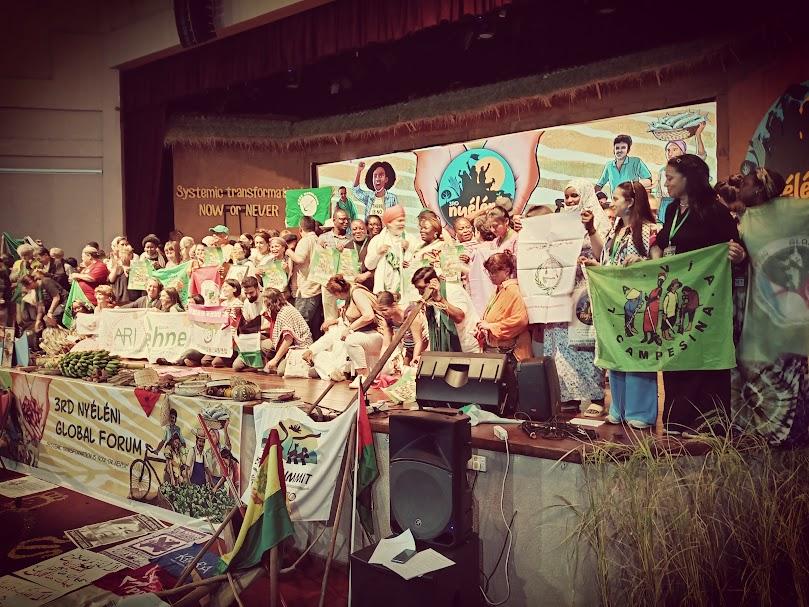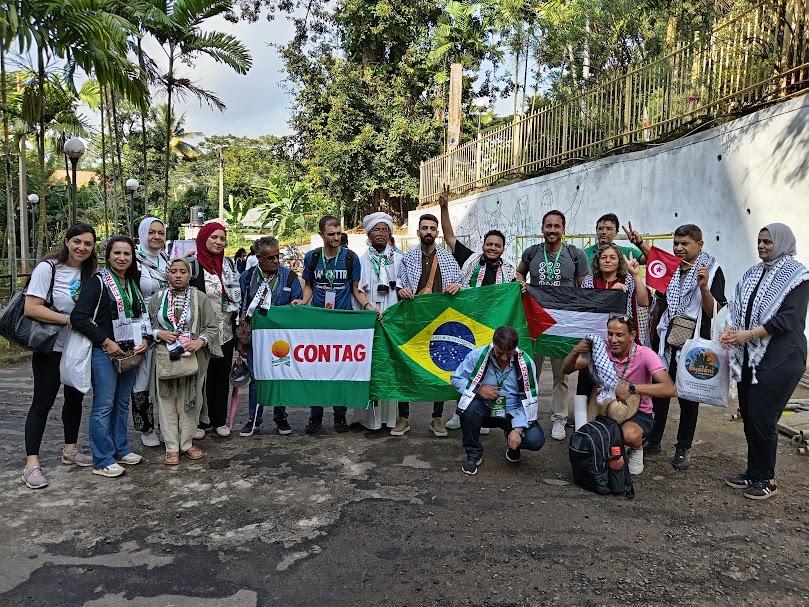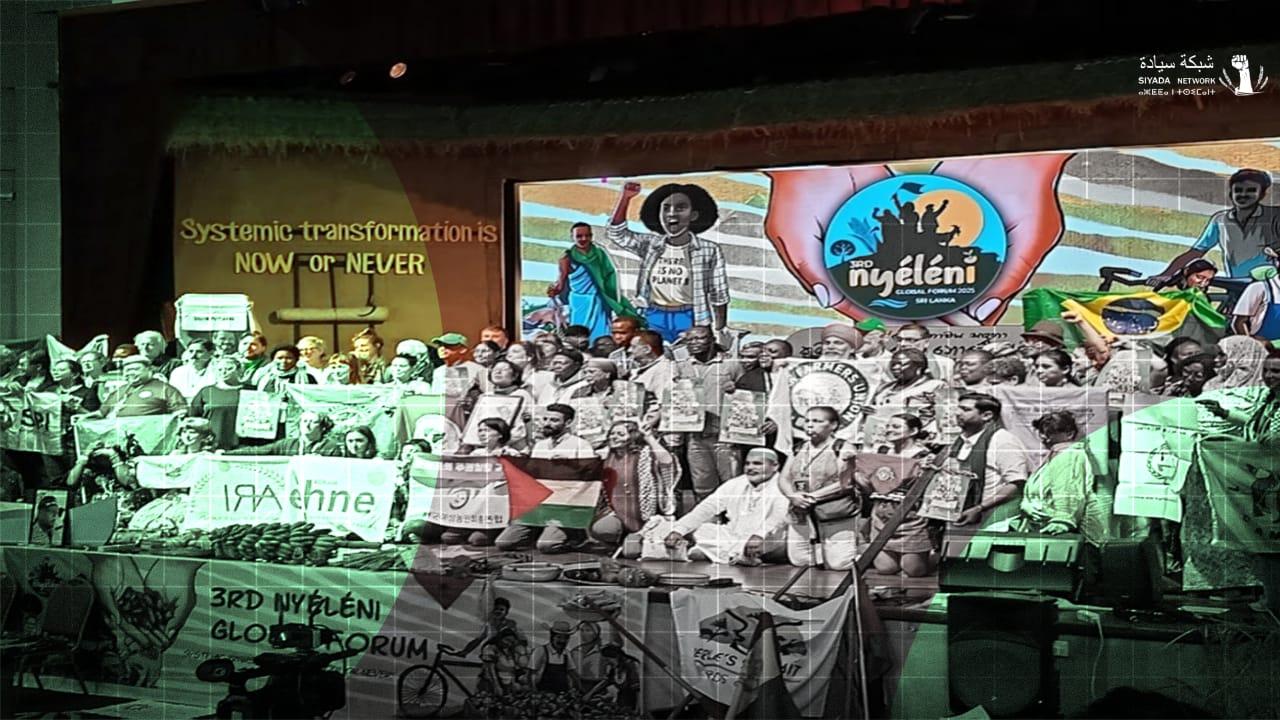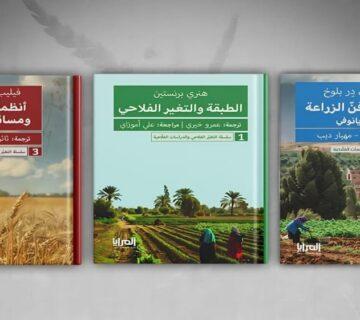SIYADA Network participated in the third edition of the Nyéléni Forum, held from September 4 to 14, 2025, in Kandy, Sri Lanka. The forum brought together around 700 participants from 101 countries around the world, including 45 participants from the Arab region: Egypt, Lebanon, Palestine, Morocco, Sudan, Yemen, Algeria, Mauritania, and Tunisia. While the first edition in 2007 and the second in 2015 saw limited representation from our region, with only one woman participating each year, the 2025 edition saw a wider presence.
Throughout the forum, there were extensive discussions on several key aspects of food sovereignty, with group discussions covering a range of topics centered on the policy paper and the ideas and perspectives for action it contained.
Context of the Nyéléni 2025 Forum
The 1990s marked a turning point in the reaction of social movements fighting against liberal globalization, militarization, and capitalism’s assaults on the social gains of the working class. Various activist movements emerged, taking different forms, such as the World Social Forum, the World March of Women, the Zapatista movement, movements of the unemployed, and the Peasants’ Road movement/ La Via Campesina, etc. In the context of the rise of anti-neoliberal movements, they were able to open a breach in the wall of capitalism and organize and raise the consciousness of millions of workers through progressive literature that fought to defend and expand their gains.

These global dynamics strengthened local activist organizations with young, militant members, enriched the leftist library with progressive literature critical of capitalism, and offered perspectives and alternatives for struggle. The global context at the time was moving in the opposite direction, with the fall of the Berlin Wall, the dissolution of the Soviet Union, the loss of credibility of the socialist project, the shift in the balance of power in favor of the United States, and a general tendency toward a loss of confidence in the struggle against capitalism. Despite all the factors of political discouragement, popular resistance against neoliberalism rose from below.
The struggle continues…
The 2025 Nyéléni Forum took place in a more complex context than in the 1990s and early 2000s, with the rise of the neo-fascist right, hostility towards minorities and immigrants, the Zionist war of extermination in Gaza, a deep environmental and capitalist crisis, accompanied by the disintegration of labor organizations such as trade unions, associations, and parties, widespread moral discouragement among the struggle’s frontrunners, and the systematic corruption of what remains of civil society organizations by flooding them with funding and programs.
Despite this climate of doubt about the capacity for popular resistance, the world is witnessing a growing struggle in several countries, most notably: the revolution in Nepal, the struggles in Indonesia, the ongoing strikes in France, the opposition movement to Trump in the United States, and growing international solidarity with Gaza, among others.
Organizing a forum of this size in the current context is an important and encouraging step that can be built upon, and a real start in embodying its general principles in our countries with our partners in the struggle, despite the shortcomings and setbacks. The first step in continuing the struggle in this troubled context has already been taken, and we must rally around it and unite our efforts for the food sovereignty project.
The 2025 Nyéléni Forum in Sri Lanka was an opportunity to gauge the morale of activists from different countries, through the success of the event and the opportunity it provided for many oppressed people to express their political views on the issues raised. The forum was a platform for sharing international experiences and expertise in the fight against capitalism, enriching the political paper and the forum’s final declaration with ideas that maintain hope for construction and collective action for the victims of capitalism.
Sri Lanka hosts a global forum
Delegates from various countries around the world began arriving on September 4, 2025. The broad participation of activists, academics, civil society actors, and small-scale food producers provided an opportunity to exchange intellectual and political views on the issue of food sovereignty. It should be noted that the forum was originally scheduled to be held in India, but the right-wing Mandi government refused to grant permission for the event to be held on its territory for political reasons, perhaps most notably the dynamic struggle of small farmers in that country.
Discussions on the political agenda began within various groups and alliances, with the policy paper serving as the forum’s actual compass, and its contents were enriched over eight full days of group discussions.

The Nyéléni Forum is an open global space that raises key issues of food sovereignty in the world (across each region or broad alliance) and explores ways of cooperating and struggling to achieve them, by building grassroots movements of small farmers and small-scale food producers and strengthening solidarity between these movements against multinational corporations and the neoliberal ideology imposed by financial institutions such as the International Monetary Fund, the World Bank, the World Trade Organization, and the Paris Club. etc.
Mestika
Mestika is one of the most prominent entertainment segments of the forum. It is a symbolic form of artistic struggle created by the social struggle movement, during which the culture or heritage of a particular oppressed people is presented. The Nyéléni 3 Forum opened with mestika, in which attendees sometimes participate, either on stage or from their seats. It is a beautiful artistic expression of the cultural diversity of peoples that is commodified on a daily basis.
Field trips
The Nyéléni Forum organized around 17 field trips across Sri Lanka, during which participants visited a number of villages and coastal areas, where they learned about important field experiences, including those of fishermen, and learned about their struggles and experiences in organizing and resistance. Other visits included visits to indigenous peoples in some villages. The field trips were a tangible experience for the participants, during which they discovered a small part of what small-scale food producers in Sri Lanka are going through in the face of the destruction of their environment and their mechanisms of resistance.
Palestine at the heart of the forum
A day of solidarity with Palestine was organized, featuring a symbolic march in which only Sri Lankan activists participated, after international delegations were prevented from participating by the Sri Lankan authorities. The march was a sincere expression of solidarity by the Sri Lankan people with the victims of the Zionist genocide in Gaza. It took place near the AICD, where the forum was held in the city of Kandy, and marched through the surrounding streets carrying solidarity banners and symbols of corpses, in reference to the magnitude of the tragedy facing the Palestinian people before the eyes of the world.
In the face of the ban, foreign and Arab delegations limited themselves to protesting inside the main auditorium of the forum headquarters, where they chanted slogans against the massacre and in support of the victims, raised Palestinian flags, and gave speeches to express their solidarity and condemnation of the barbaric Zionist genocide.

The participants believe that the Palestinian cause is central to the struggle for the right to self-determination and the rejection of the Zionist occupation of Palestinian land, the displacement of its farmers and indigenous inhabitants, the destruction of its crops, and the theft of its agriculture, seeds, and water, etc. etc. The participants emphasized the need for greater solidarity with the Palestinian people until they gain their freedom and their land… Other activists added the need for solidarity with all peoples who are subjected to oppression and massacres, similar to what the Palestinian people are subjected to, such as the Sudanese people.
Conclusion
Nyéléni presents a historic opportunity for social movements to forge links, work collectively, and cooperate on specific issues related to food sovereignty, both in the Arab region and elsewhere. Social movements opposed to neoliberalism open up prospects for struggle and cooperation, something that has been lacking in our region due to decades of absence of any tradition of cooperation and joint action. Nyéléni 3 is a broad space from which we can develop, each with the issues that are currently considered a priority in their region or country. We in the Arab region/North Africa/Middle East must take concrete steps towards this endeavor, and we at SIYADA Network will do our very best to achieve this struggle cooperation.




